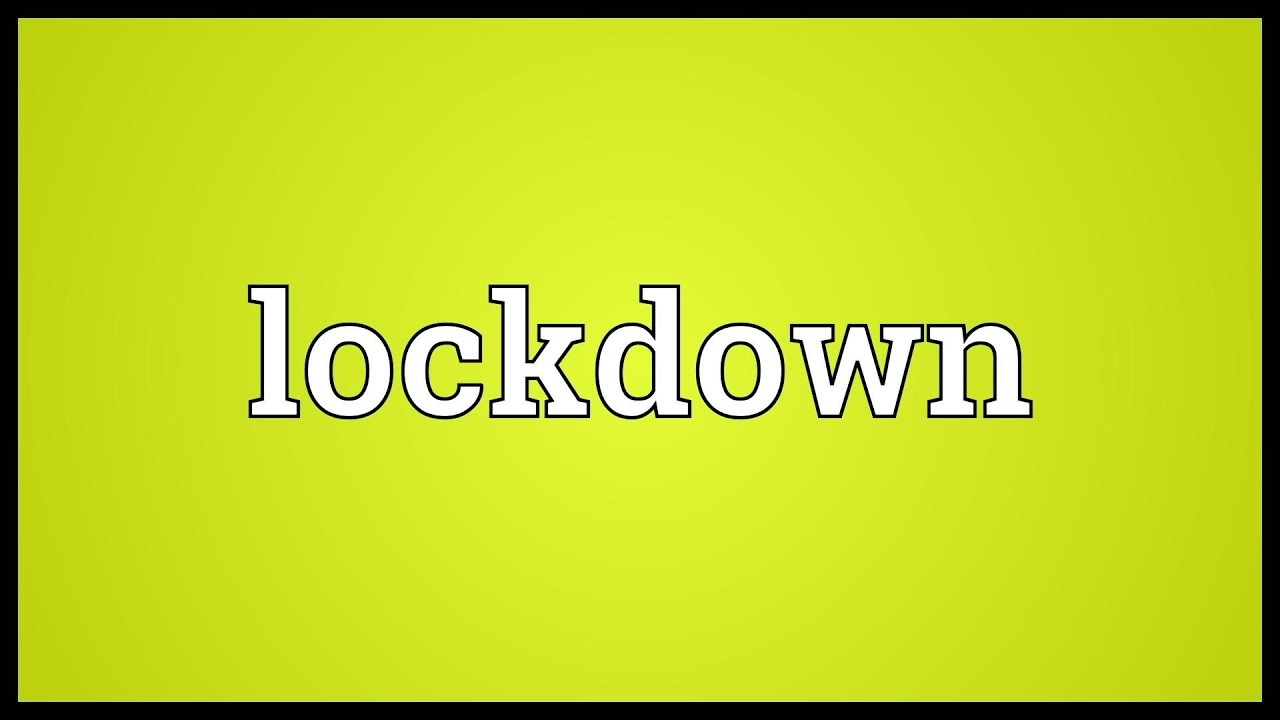As the news of lockdown in Lagos filtered – in on Wednesday 25th March, by evening, local markets and roadside stores, including major supermarkets in town were flooded with last minute shoppers making panic buying. As a supposed relief the governor had announced plans to set –up temporary neighbourhood markets to ease the burden of access to basic needs like food and other essentials. The lockdown reverberated across several other states in Nigeria in different shades, culminating in the Presidential directive for 14 days lockdown in high risk states. Lockdowns have been witnessed across many other African countries as the entire continent gears up efforts to contain the spread of the Corona virus. Truth be told, this is the right way to go in reducing the chances of community infection of the COVID – 19, however, the critical aftermath – Economic IDPs- has not received any attention.
ECONOMIC IDPs
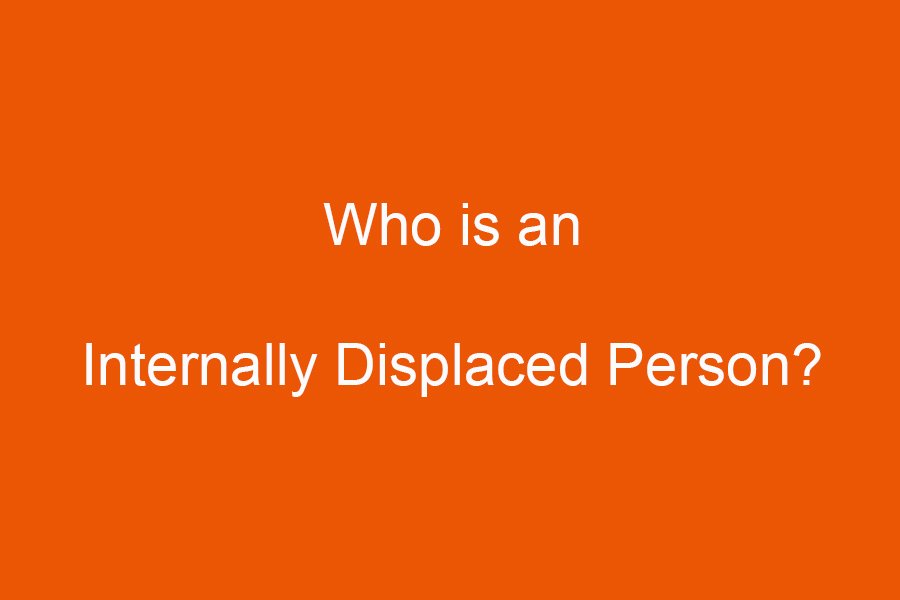 Economic IDPs in this instance describes the status of persons, once economically active, but incidentally deactivated. Economic IDPs relate to persons, once actively involved in economic activities but who are incidentally displaced from the economic cycle on account of the lock-downs. From shut markets and shops, some households who live off daily takings from their trade are automatically enlisted under the Economic IDPs; Inter-state and cross-border transporters are out of business; Nigeria’s mobile supermarket (hawkers on traffic gridlocks – largely youths) is automatically on lockdown. Even salaried workers are not spared: private sector employees are already moaning their woes as most employers do not have the capacity to sustain salary payments in the absence of business activities.
Economic IDPs in this instance describes the status of persons, once economically active, but incidentally deactivated. Economic IDPs relate to persons, once actively involved in economic activities but who are incidentally displaced from the economic cycle on account of the lock-downs. From shut markets and shops, some households who live off daily takings from their trade are automatically enlisted under the Economic IDPs; Inter-state and cross-border transporters are out of business; Nigeria’s mobile supermarket (hawkers on traffic gridlocks – largely youths) is automatically on lockdown. Even salaried workers are not spared: private sector employees are already moaning their woes as most employers do not have the capacity to sustain salary payments in the absence of business activities.

Businesses themselves are also enlisting under the economic IDPs. Interest – bearing loan facilities undertaken by businesses and entrepreneurs are running without restriction, even when the businesses that bear the liability are on lockdown. Tax authorities in Nigeria, for example, were quick to announce extension of filing period without any consideration on the break in business flows: extension does not in itself guarantee liquidity or ability to pay. Rents and utility bills would still accrue as usual even when the debtor has no access to his/her economic source. The hope of the unemployed to attend interviews and gain employment is also on lockdown. How about the cart-pushers and porters in the closed markets, whose daily livelihoods have been locked-down.
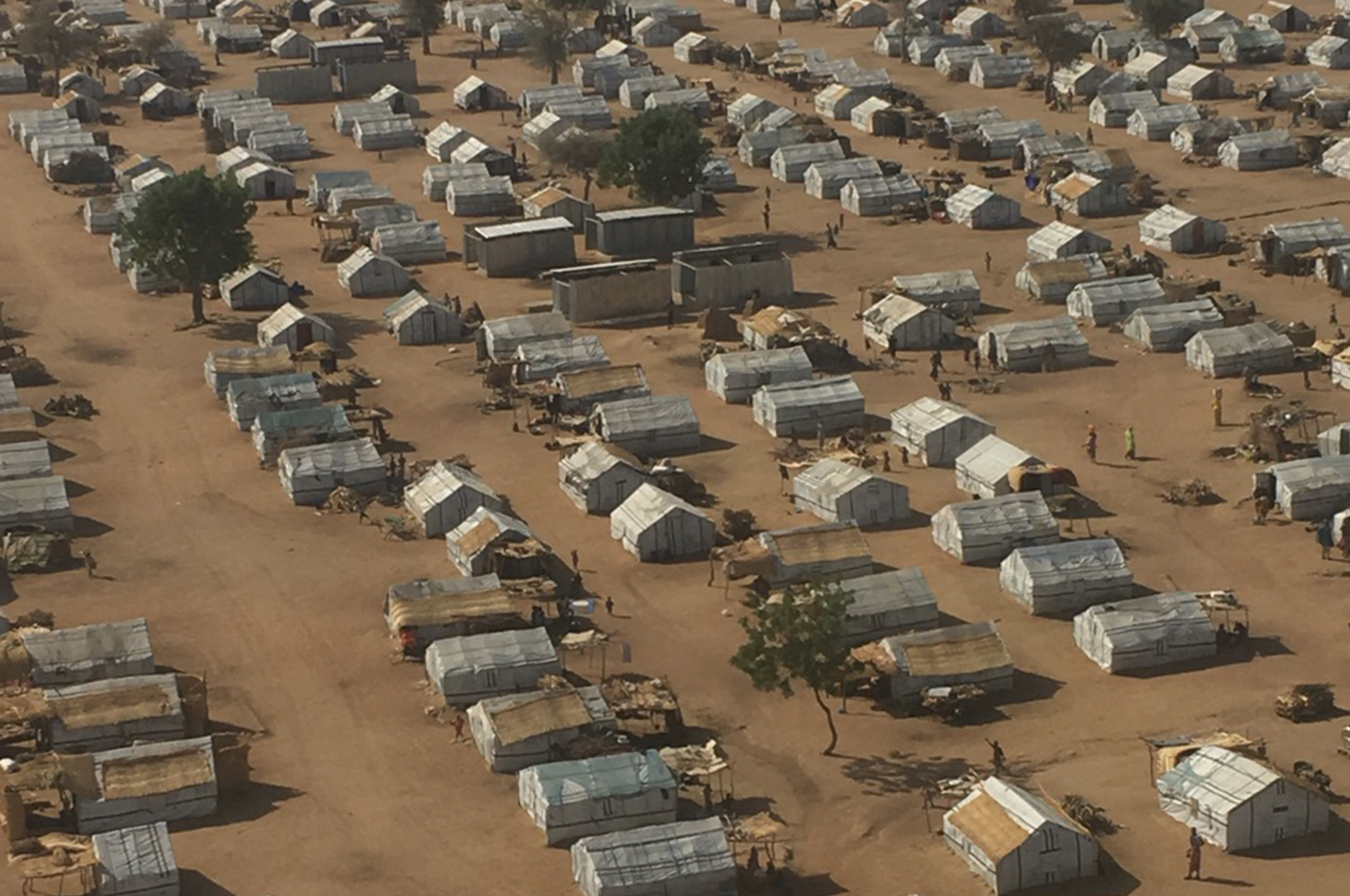 Unlike physical IDPs (internally Displaced Person), there is yet to be any sustainable palliative to ameliorate the economic consequences facing the Economic IDPs. Africa, without any known history of social security would soon have the scourge of economic IDPs to grapple with, in addition to the corona virus; the later may possibly out-live the former. Even after the lockdowns are over, some businesses may have too much debt burden that would likely impinge on their eventual return to business. Most households may have to settle with hunger strike for while the lockdowns last. This situation needs to be juxtaposed with the warning of the UN that Africa may relapsed into recession after the pandemic, without adequate debt support. The reality of this impeding recession begins with the incidence of economic IDPs and would be accelerated by its potential magnitude; the bulging African population, which translates to market for output, may not afford the patronage which kept businesses thriving in the continent. Another worry that follows the incidence of economic IDPs is the decreasing purchasing power of the people. As the plight of the economic IDPs intensifies, the GDP of the continent would be under economic ambush.
Unlike physical IDPs (internally Displaced Person), there is yet to be any sustainable palliative to ameliorate the economic consequences facing the Economic IDPs. Africa, without any known history of social security would soon have the scourge of economic IDPs to grapple with, in addition to the corona virus; the later may possibly out-live the former. Even after the lockdowns are over, some businesses may have too much debt burden that would likely impinge on their eventual return to business. Most households may have to settle with hunger strike for while the lockdowns last. This situation needs to be juxtaposed with the warning of the UN that Africa may relapsed into recession after the pandemic, without adequate debt support. The reality of this impeding recession begins with the incidence of economic IDPs and would be accelerated by its potential magnitude; the bulging African population, which translates to market for output, may not afford the patronage which kept businesses thriving in the continent. Another worry that follows the incidence of economic IDPs is the decreasing purchasing power of the people. As the plight of the economic IDPs intensifies, the GDP of the continent would be under economic ambush.
GLOBAL PERSPECTIVES
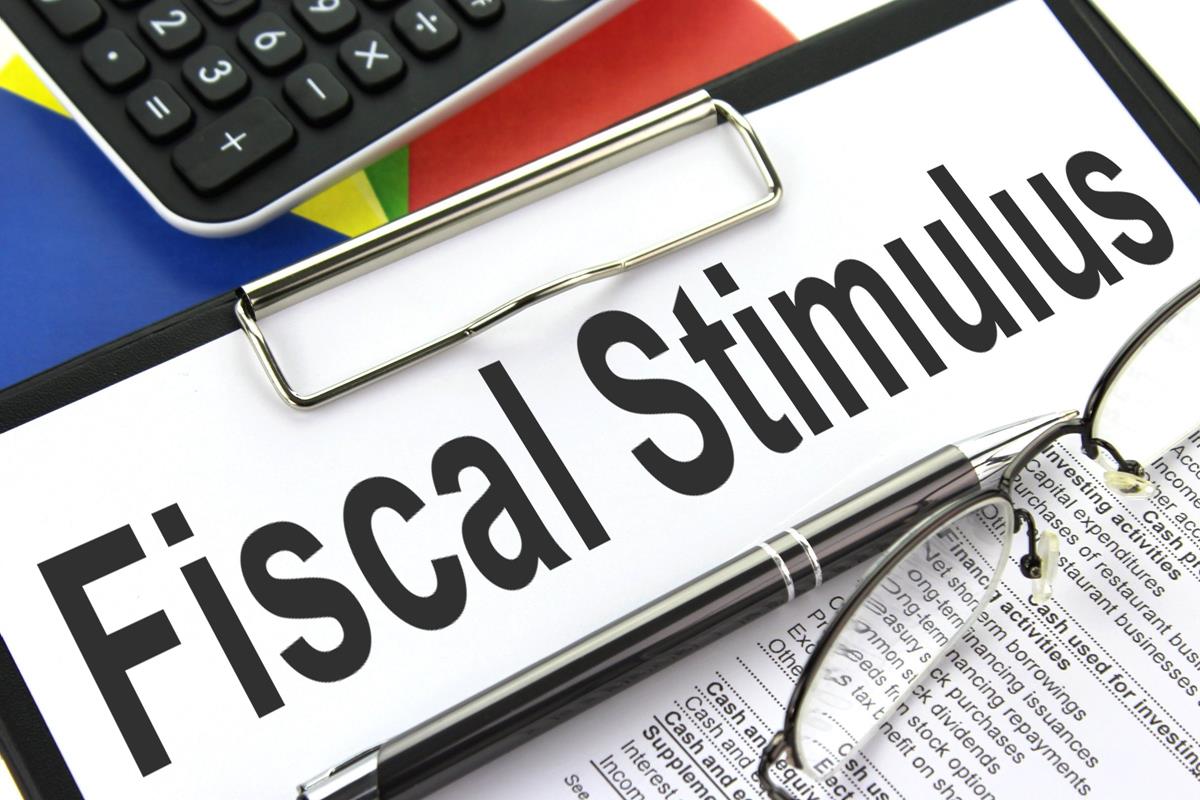 Bloomberg reported that governments around the world have pledged more than $1.9 trillion in fiscal support as they rush to contain the coronavirus and shore up financial markets and businesses. UK pledged to pay 80% of wages for those not working due to the corona virus crisis up to a maximum of £2,500 per month. What this means is that workers who are occasioned to stay at home upon the lockdown, can afford their daily bread for while the lockdown persists. This is besides the business bailout package worth £350bn announced by the government to help firms cope with the lockdown. Canada has also announced streams of relief totalling about C$82billion, including C$10 billion to support SMEs. Other aspects of the Canadian relief includes about $55 billion in tax deferrals and 10% temporary wage subsidies for employers who have closed shop, so as to allow the employers to keep their workers on payroll. The $2trillion stimulus package by the US government is yet another example among the global responses to imminent economic IDPs.
Bloomberg reported that governments around the world have pledged more than $1.9 trillion in fiscal support as they rush to contain the coronavirus and shore up financial markets and businesses. UK pledged to pay 80% of wages for those not working due to the corona virus crisis up to a maximum of £2,500 per month. What this means is that workers who are occasioned to stay at home upon the lockdown, can afford their daily bread for while the lockdown persists. This is besides the business bailout package worth £350bn announced by the government to help firms cope with the lockdown. Canada has also announced streams of relief totalling about C$82billion, including C$10 billion to support SMEs. Other aspects of the Canadian relief includes about $55 billion in tax deferrals and 10% temporary wage subsidies for employers who have closed shop, so as to allow the employers to keep their workers on payroll. The $2trillion stimulus package by the US government is yet another example among the global responses to imminent economic IDPs.
 India has also announced series of reliefs ranging from monthly stipend to subsidies and food supplies; all in a bid to offer palliatives to residents as the lockdown unfolds. Australia announced fiscal stimulus of about A$17.6 billion (or $9.85 billion) including A$1.3 billion to safeguard jobs of 120,000 apprentices; one-time cash payments to welfare recipients and lower-income households and wage subsidies for SMEs. Japan has committed a total of ¥2.03 trillion ($19 billion) to counter the economic impact of the COVID – 19; these funds address critical concerns including low-cost loans to companies affected by the virus and cash pay-out to individuals. South Korea announced a total of 11.7 trillion won ($9.1 billion) comprising aid to businesses and households including tax breaks, rent subsidies. In Indonesia, relief packages total $3.97 billion including fiscal incentives, grants to local governments and a boost to social security funds.
India has also announced series of reliefs ranging from monthly stipend to subsidies and food supplies; all in a bid to offer palliatives to residents as the lockdown unfolds. Australia announced fiscal stimulus of about A$17.6 billion (or $9.85 billion) including A$1.3 billion to safeguard jobs of 120,000 apprentices; one-time cash payments to welfare recipients and lower-income households and wage subsidies for SMEs. Japan has committed a total of ¥2.03 trillion ($19 billion) to counter the economic impact of the COVID – 19; these funds address critical concerns including low-cost loans to companies affected by the virus and cash pay-out to individuals. South Korea announced a total of 11.7 trillion won ($9.1 billion) comprising aid to businesses and households including tax breaks, rent subsidies. In Indonesia, relief packages total $3.97 billion including fiscal incentives, grants to local governments and a boost to social security funds.
AVOIDING ECONOMIC IDPs

Social Security Packages – To contain the spread of the virus is no doubt top priority; to contain the economic consequence of some of the physical strategies to curb the spread of the virus is equally important, else, sustainability would be missing from the solution. African nations must begin to think along their peers in other climes in ensuring sustainable strategies are deployed in the fight against the corona virus. Whilst it is important to adopt the containment strategy ‘Sit at Home’ and total lockdown, such strategies must be accompanied with fiscal stimulus and social security packages targeted at both households and businesses. Pay subsidies to ensure workers and self-employed persons who sit at home do not starve with their families; subsidies to ensure companies can afford payroll costs at the basic without resorting to mass retrenchment. Though we have no history of social security payments, these African nations can offer transferred payments by exonerating citizens from utility bills like electricity and water so as to conserve their already weakened disposable income.

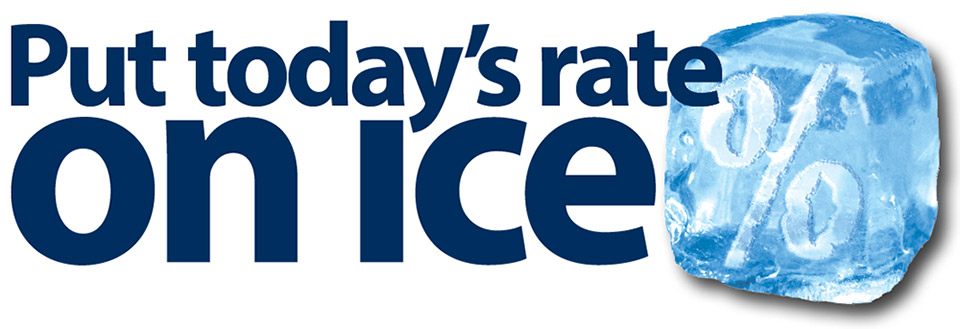 Interest Freeze – with growing consumer loan portfolios among Africa’s working class, non-payment or delays in payment of wages would result in a large volume of non-performing loans. Same applies to business loans which may become non-performing due to business closures. Except interest freeze is facilitated through government policy, the banks would continue to accrue these interests on loans from which the loan debtors have created no economic benefits to settle the loans. The burden of these dead weights would impinge on the ability of the economies to bounce back after the pandemic.
Interest Freeze – with growing consumer loan portfolios among Africa’s working class, non-payment or delays in payment of wages would result in a large volume of non-performing loans. Same applies to business loans which may become non-performing due to business closures. Except interest freeze is facilitated through government policy, the banks would continue to accrue these interests on loans from which the loan debtors have created no economic benefits to settle the loans. The burden of these dead weights would impinge on the ability of the economies to bounce back after the pandemic.
TIME IS RUNNING OUT
 The time to act is already counting and is far spent. Evidences abound of workers who have proceeded on temporary retrenchment without guarantee for salary payment. In all the markets shutdown, bread winners have been isolated from their sources of livelihood, without palliatives. Small and Medium Enterprises are already shedding staff; teachers of private schools have been home for weeks without guarantee of where the next salary will come from. The fiscal lockdown seem to be taking effect faster than the physical lockdown, thereby creating a voiceless but visible community of economic IDPs – nationals internally displaced from active participation in economic activities. Unlike the physical IDPs, the economic IDPs have no camps, no relief materials and they receive no special attention; their number is yet to be determined but the number is growing per day. More worrisome is the fact that the status of these economic IDPs may not automatically change when the lockdowns are over. Like in the case of every physical displacement, it is critical for governments across Africa to spare a thought on the plight of Economic IDPs and concurrently plan for their containment even as the continent takes bold step to contain the spread of the corona virus.
The time to act is already counting and is far spent. Evidences abound of workers who have proceeded on temporary retrenchment without guarantee for salary payment. In all the markets shutdown, bread winners have been isolated from their sources of livelihood, without palliatives. Small and Medium Enterprises are already shedding staff; teachers of private schools have been home for weeks without guarantee of where the next salary will come from. The fiscal lockdown seem to be taking effect faster than the physical lockdown, thereby creating a voiceless but visible community of economic IDPs – nationals internally displaced from active participation in economic activities. Unlike the physical IDPs, the economic IDPs have no camps, no relief materials and they receive no special attention; their number is yet to be determined but the number is growing per day. More worrisome is the fact that the status of these economic IDPs may not automatically change when the lockdowns are over. Like in the case of every physical displacement, it is critical for governments across Africa to spare a thought on the plight of Economic IDPs and concurrently plan for their containment even as the continent takes bold step to contain the spread of the corona virus.

The CSR Arena is a CSR advocacy and sustainability-reporting-analysis champion. We encourage and celebrate effective CSR and positive social impact by responsible corporate citizens; we celebrate international best practices in sustainability reporting across different economic divides. Our goal is to realize the dream of development scholars that, ‘corporates, more than governments, would bring about the much needed sustainable development across the globe. We partner with FBOs, NGOs, CBOs, governments and corporates to spread the message of sustainable development and corporate sustainability. Our platforms bear tales of good corporate citizenship – grab the microphone that you may be heard. Contact: news@thecsrarena.com
